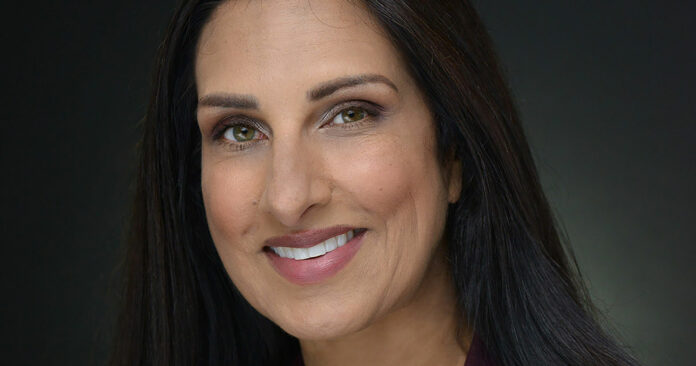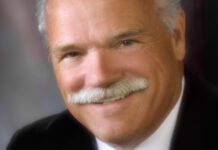We all live in a brainiac world, to be sure, but the heart remains the emotional, spiritual center of our being. It’s still such a symbol of love and emotion, with our language sprinkled with metaphors invoking the heart as the source of empathy, emotion, consciousness, reason and purpose.
Your heart can go out to someone, you can feel a heavy heart in times of sorrow, you can have a change of heart, hold something close to your heart, be sick at heart and get to the heart of any issue. You can feel things from the bottom of your heart, be cursed with a cold heart or possess a heart of gold. You can have your heart set against something and even have a heart-to-heart talk with someone who is your heart’s desire.
Yet sometimes we go weeks without thinking about our physical hearts — each the size of a fist that weighs maybe 12 ounces. On a typical day it will beat 100,000 times. Touch a finger to your wrist or the carotid artery in your neck. Now try to imagine the medical marvel of that lumpy muscle that does not resemble any Valentine’s heart you’ve ever seen. If taken care of properly, it will faithfully beat nearly 3 billion times over a normal lifetime.
We all know that February is about love, especially romantic love, but it’s also Heart Health Month, a time when all of us can focus on our cardiovascular health. Sadly, heart disease is the leading cause of death for men, women, and people of most racial and ethnic groups in our country.
Heart disease takes a financial toll, too. It costs our country nearly $400 billion each year, including the cost of healthcare services, medicines, and lost productivity due to death.
At Mee Memorial Healthcare System, we take seriously our motto “Healthcare with Heart,” and offer an extensive array of services — from routine checkups, to chronic care and emergencies. As the only hospital within 45 minutes of King City, our facility provides acute care, outpatient, and emergency services.
Throughout February the entire MMHS family will take up the cause behind Heart Health Month. We stand behind Million Hearts, a national initiative to prevent 1 million heart attacks and strokes within five years. It focuses on implementing a small set of evidence-based priorities and targets that can improve cardiovascular health for all.
The “Start Small. Live Big” campaign encourages adults, particularly those age 55 and older, to get back on track with small steps — such as scheduling medical appointments, getting active and eating healthy.
Not sure where to start?
Work with your doctor to make a plan by:
- Checking your blood pressure and cholesterol numbers — and teaching you how to check your numbers at home
- Supporting you in other heart-healthy changes, such as quitting smoking.
- Connecting you with specialists to treat heart problems and other conditions
- Prescribing medicines if you need them
Physical activity is key to a healthy heart
And when you’re active, it’s easier to keep doing all the things you love. Consider these tips:
- Start with just five minutes. If you haven’t been active lately, start slow and go at your own pace. Even 5 minutes of activity a day has real health benefits, and you can build up to more over time.
- Walk more. Walking is a great way to start being active. Try fitting in a short walk in the morning or after dinner. Consider rescuing a dog! Our furry friends need to walk daily and can help motivate you.
- Get moving while you get things done. Active chores such as gardening, vacuuming, washing the car, and raking leaves all count as physical activity.
- Find an activity buddy. Physical activity can be more fun with others. Try a group activity class at your local rec center or invite a friend to go for a walk with you.
Small changes in your eating habits make a big difference in your heart health
Consider these tips to make heart-healthy changes:
- Eat more fruits and veggies. Try making half your plate fruits and veggies at each meal, making meat more of a side dish.
- Cut down on sodium. Too much sodium (salt) can raise your risk for high blood pressure, heart disease, and stroke. Processed and packaged foods have a lot of sodium — so check the label and choose options with less sodium.
- Choose healthier fats. Too much saturated fat from fatty meats and full-fat dairy can be bad for your health. Try swapping saturated fat for healthier unsaturated fats — found in olive oil, avocados, and nuts.
Finally, we can’t talk about heart disease without mentioning stress. We can’t always prevent or avoid it, but we can all change how we respond to it. When we’re under stress, our heart rate increases and our blood vessels narrow. Research shows that stress can make us more likely to get heart disease and have a heart attack.
The earlier in life you learn how to de-stress, the happier you and your heart will be. So try to listen to your body and the signals it gives, and find a relaxation response that works for you — whether it’s meditation, breathing, yoga, art, exercise or even counseling. Learning to manage stress is an important tool in our overall wellness.
As our attention turns to love in February, make National Heart Month a holiday of its own. As we send out our Valentine’s Day cards, dig into heart-shaped boxes of chocolates (in moderation!) and fill our social media feeds with heart emojis, let’s also keep in mind the real hearts beating inside our chests.
So please take care every day to keep it beating over a long, healthy, happy life.














